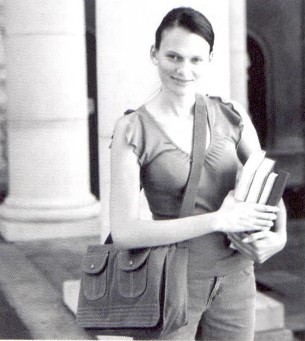美式发音 适合泛听
Jagjit Chauhan (Painter): Well, you could say it’s completely 1)redundant if you look at 2)Banksy, so it’s not just about visual production, it’s about management, you know, and so on. But I think an art education is really an education in philosophy. It’s about 3)conceptualizing your response and experience of the world. It’s like being in a greenhouse for a tender plant, you’re protected from the outside world. You have a dialogue with other students and the tutors, so it gives you that time and space to learn and acquire those skills.
Geff Francis (Actor): I would definitely suggest if you can, you go to drama school because that instantly keeps you in touch with the business. What you would learn in drama school in three years would take you maybe six years to learn on the street, because, obviously, you have to work in order to learn. But if you don’t have that option or you can’t afford to go into…to drama school, then you have to do what I did which is go to theatres, wait behind in the bar, talk to actors, tug peoples’ trousers’ legs and find your way in, do non-professional work, go to, kind of, public open castings, any way in is a way in, you know, and if you’re determined, you will do it.
Mohammed Ali (Graffiti Artist): You can’t go to school and they’ll show you how to use a spray can. It was something that really was an unconventional kind of medium. It was something that you had to pick up yourself; you couldn’t go and get a book from the library about how you’re gonna spray a can. At the same time, you know, I was still studying art and doing painting and doing the kind of traditional techniques. My art teacher would always kind of try and push me: “You know you need to study traditional methods, you need to study the traditional artists,” and which I was forced to do, which I had to do, and there was some benefit of course in that, no doubt, you know, understanding the forms of colour and composition, etc, was definitely beneficial. So, you know, graffiti and the kind of combined that kind of knowledge that I’d had definitely kind of helped me in my work.
 贾吉特·查汉(画家):嗯,如果你以班克希为例的话,你可以说教育完全是没有必要的。所以说艺术教育其实并不仅仅是视觉创作,而是指在如何处理上,等等。可我觉得艺术教育其实是哲理教育,是如何让你把对现实中的体验与感受概念化。在学校里,就像是娇嫩的植物在温室里一样,作为学生,你受到保护,可以与其他学生和老师进行对话,这些都让你有时间和空间去学习知识、获取技能。
贾吉特·查汉(画家):嗯,如果你以班克希为例的话,你可以说教育完全是没有必要的。所以说艺术教育其实并不仅仅是视觉创作,而是指在如何处理上,等等。可我觉得艺术教育其实是哲理教育,是如何让你把对现实中的体验与感受概念化。在学校里,就像是娇嫩的植物在温室里一样,作为学生,你受到保护,可以与其他学生和老师进行对话,这些都让你有时间和空间去学习知识、获取技能。
杰夫·弗兰西斯(演员):我肯定会告诉你,如果有可能的话,去读表演学校,因为这样你就能马上接触并了解这一行。你在表演学校三年里可以学到的东西,在外面至少要六年才能学会,因为,不用说,你还得工作才能学习。不过,如果你没有选择的余地,或者你没钱上学,你就得像我那样上剧院、在酒吧当侍者、跟演员交流、努力引起他人的注意,找办法进去,还有就是做一些专业外的工作,去参加公开招聘的试镜,以任何可能的方式进入这一行,进去了就有希望。如果你决意要从事这一行,你就会这么做。
穆罕默德·阿里(涂鸦艺术家):不可能指望说你去上学,学校教你怎么样用喷涂罐,因为这是一种非常规的创作工具。你得自己去学,你没法子到图书馆借本教你怎样喷涂的书。但另一方面,你知道吧,我也在学校里学习艺术、画画,并采用一些传统的技巧。我的艺术老师常常会鞭策我说:“你明白,你需要学习一些传统的方法,你要研究传统的艺术家。”这样我就不得不这样做。这样也肯定是有益的,因为毫无疑问,对色彩和构图的理解很有用。因此,你也知道,对于涂鸦艺术来说,各种知识结合在一起肯定有助于我的创作。
翻译:旭文 
